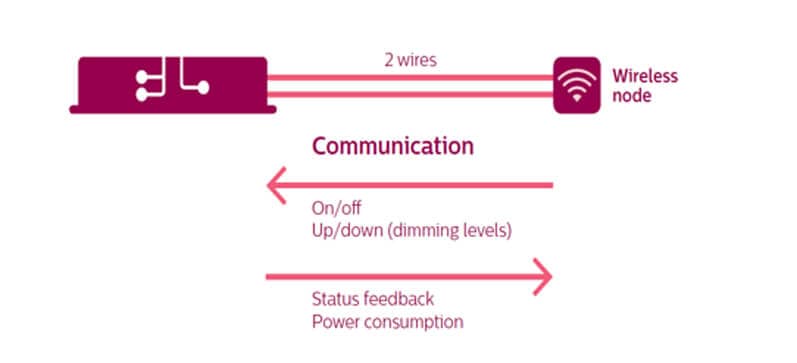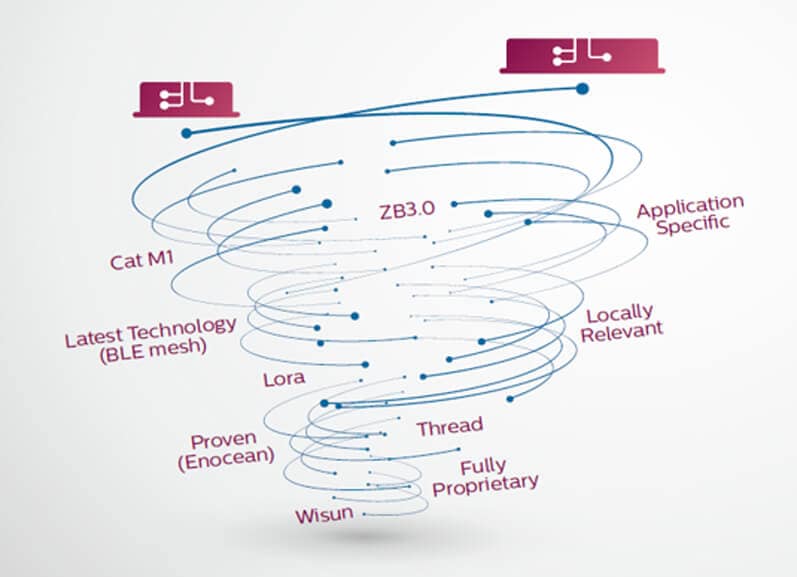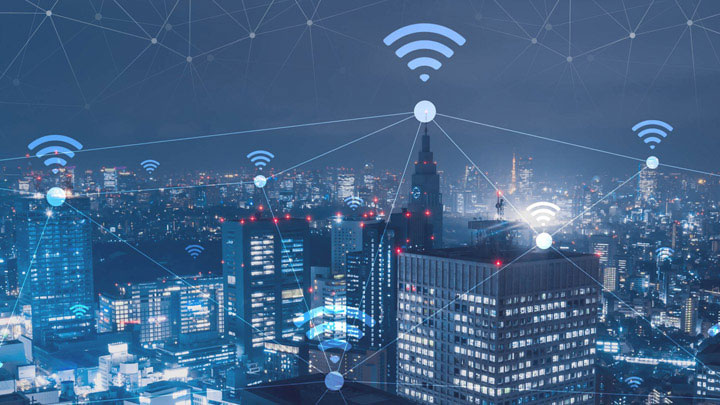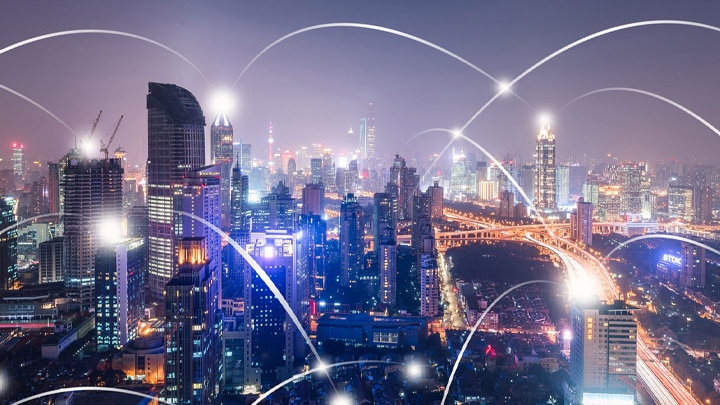We all know that lighting can be adjusted in many ways – from daylight dimming to task tuning via manual or scheduled controls. But while it’s useful to match lighting to different personal preferences, it’s even more useful to understand how different settings create energy savings, especially when lighting accounts for as much as 18% of a building’s energy consumption1.
1 Source: https://constructioninformer.com/let-occupants-lower-commercial-building-lighting-costs/
Fortunately, it’s now possible to obtain these valuable insights through wireless lighting controls. This emerging technology is helping customers uncover their consumption patterns for the first time in order to establish more sustainable uses of energy and realize substantial savings.
How can lights be controlled wirelessly?
Connected lighting is all about two-way data communications: Wireless lighting controls with bidirectional connectivity can both send and receive data from luminaires.
When combined with lighting management software, connected lighting systems enable people to see the current state of each lightpoint, and to act on lightpoints individually or in groups to monitor, manage, and maintain lighting systems in real time.

What about all the different wireless protocols?
To simplify things for everyone, rather than creating yet another custom interface, Signify has pioneered a standard protocol between the LED driver and the wireless controller. This eliminates the need for specialized devices, connections or connectivity, while providing full support for today’s wireless protocols.
With Advance Xitanium SR (sensor-ready) LED drivers, fixture manufacturers can create new luminaires with confidence that their products will reliably connect to sensors and the Internet of Things, bringing forward more sustainable, smart lighting to the planet.


Global Product Manager
Signify

Lights down, savings up
Wasted energy is hugely expensive for homes, businesses, governments, and the planet. And yet the solution is remarkably simple.

Is a Hue moment approaching for smart commercial lighting?
With the Sensor Ready (SR) standard in place, is a Hue moment approaching for smart commercial lighting?

In a connected world, what happens to lighting?
Digital connectivity is changing the world around us. Take the television. Only a few years ago, complex rating systems determined which shows were popular with which audiences.